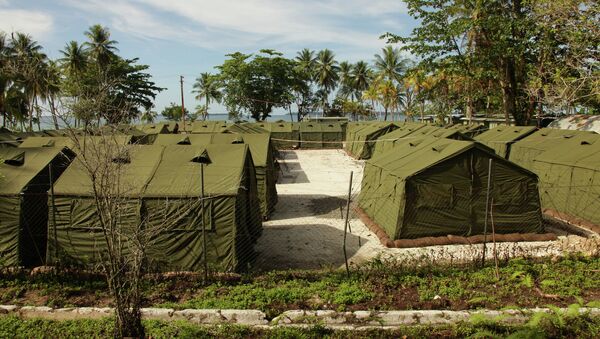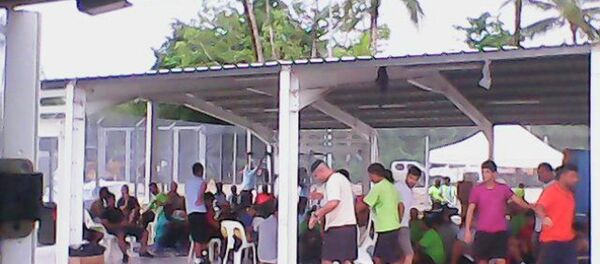"The authorities must, as far as possible, ensure the health, welfare and safety of protesting detainees, and respect their right to protest peacefully, including through hunger strikes," Amnesty's Refugee Campaign Coordinator Graeme McGregor was quoted as saying in a statement on the organization's website.
Asylum seekers, primarily from Iran, Iraq, Afghanistan and Sri Lanka, travel to the Australian islands by boat and are settled in offshore detention camps, such as the one on Papua New Guinea's Manus Island. There are currently more than 1,000 refugees at the Guinean center alone, according to the BBC.
Authorities on #Manus must respect asylum seekers' right to protest and ensure response is restrained> http://t.co/ImsYTatmyB
— Amnesty Australia (@amnestyOz) 19 января 2015
Over the past week, there have media reports of protests at the Manus Island center, with refugees locking staff out and going on hunger strikes over alleged plans of the Papua New Guinean government to resettle them to areas where the asylum seekers fear they will be attacked by locals.
Amnesty International said it had visited the detention center and found that "some conditions in the center violate the UN Convention Against Torture". It also concluded that the facility is "designed to pressure asylum seekers to return regardless of whether they will face persecution in the countries from which they fled".
"Guards in riot gear have stormed Delta & Oscar compounds" at #Manus Island detention centre http://t.co/xJZjUQ2mmP pic.twitter.com/4k7JYulLky
— Susan Metcalfe (@susanamet) 19 января 2015
To resolve the standoff, security guards in riot gear entered the camp by force overnight, manhandling refugees and taking away the alleged ringleaders, according to the Guardian Australia. In a similar incident in February 2014, a 24-year-old female refugee was killed and about 70 protesters injured.




